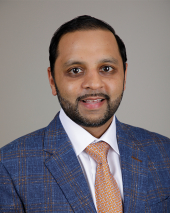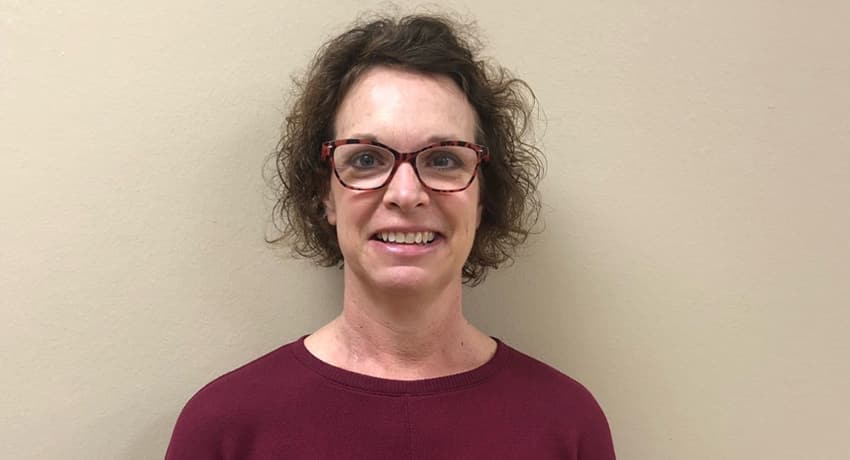As a nurse practitioner specializing in family medicine, Britt Smith dedicated her career to healing others. However in 2021, she took on a new role — a patient battling stage 3 cancer.
Diagnosis
Considering herself a healthy individual, Smith knew it was odd when she lost nearly 10 pounds in a week without trying. Having severe lower abdomen pain during a workday was the last straw. A CT scan test showed nothing out of the ordinary, minus a few inflamed lymph nodes. Sticking to her gut feeling that something was not right, she scheduled a colonoscopy, which definitively showed advanced colorectal cancer.
“I was scared with the thought that I might die from this cancer,” shared Smith. “I would be leaving behind my husband and children. I wouldn’t see my girls get married, my son graduate from school, or any of my future grandchildren.”

Taking a proactive approach, the mother of four walked into the UT Physicians Colon & Rectal Clinic in Sugar Land and hoped for a same-day appointment. Conveniently located near one of her health care organization’s locations, she was already familiar with their doctors. Luck was on her side and she was able to be seen a few hours later by colorectal surgeon Amit K. Agarwal, MD.
“I did squeeze her in the same day she came in because I thought it was important to get the ball rolling,” said Agarwal, assistant professor in the Department of Surgery at McGovern Medical School at UTHealth Houston. “I drew out a diagram for her and checklist of the pending plans, ordered some additional CT scans, and booked her surgery within seven to 10 days. The rest is history.”
Surgery
Before her surgery, Smith was concerned but comforted by the fact that Agarwal laid out everything she needed to know or questioned beforehand.
“We performed a robotic oncologic curative low anterior resection,” explained Agarwal. “Meaning, we removed the part of the distal sigmoid colon and rectum involved by the cancer and reconnected what was remaining to the descending colon.”
In addition to the reconnection, all lymph nodes in the area, a total of 68, were removed.
Recovery in the hospital lasted a few days with minimal pain, which Britt believes is a result of her active lifestyle.
Recovery
After being home for two weeks, Agarwal saw his patient again to discuss her pathology results.
“I recommended she see a medical oncology expert to discuss chemotherapy since she had stage 3 disease,” said the physician.
Smith underwent several rounds of chemotherapy and was officially deemed free of cancer in August, four months from her initial diagnosis.
Today, she applies a holistic approach to her lifestyle to ensure long-term health, including meditating, a mostly vegan diet, exercise, and mindfulness. Her care team, including Agarwal, still see her on a semi-regular basis for additional testing and lab work.
Forever changed by her experience, Smith strongly encourages her patients to schedule a screening with Agarwal or another expert of their choosing before it’s too late.
“I have a lot of patients that are resistant, but I just tell them that you need to get it done,” she said. “The earlier they detect it, the less invasive procedures you may have to go through.”
Agarwal, a steadfast supporter of early screenings, echoes this sentiment.
“Colorectal cancer is the third leading cause of cancer-related deaths in men and women in the U.S. When caught early, before it spreads, the five-year relative survival rate is nearly 90%.”
To schedule an appointment with one of our colorectal experts, call 888-488-3627 or visit this page.



